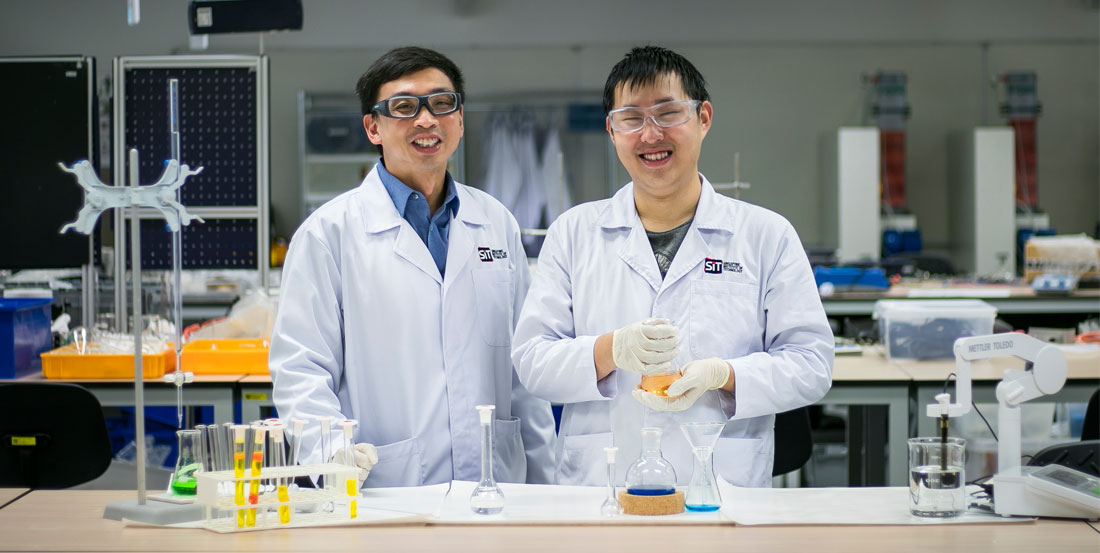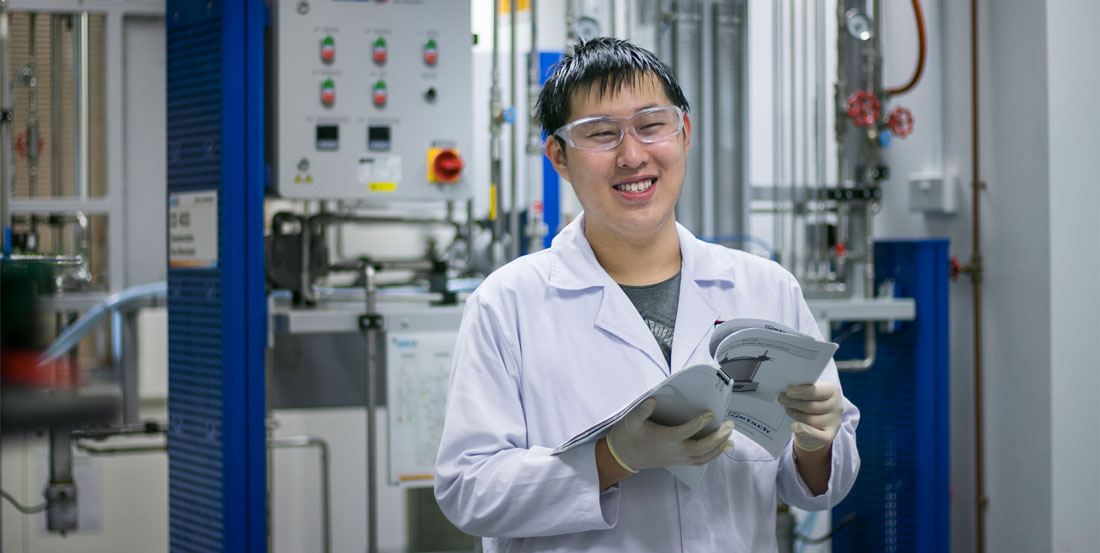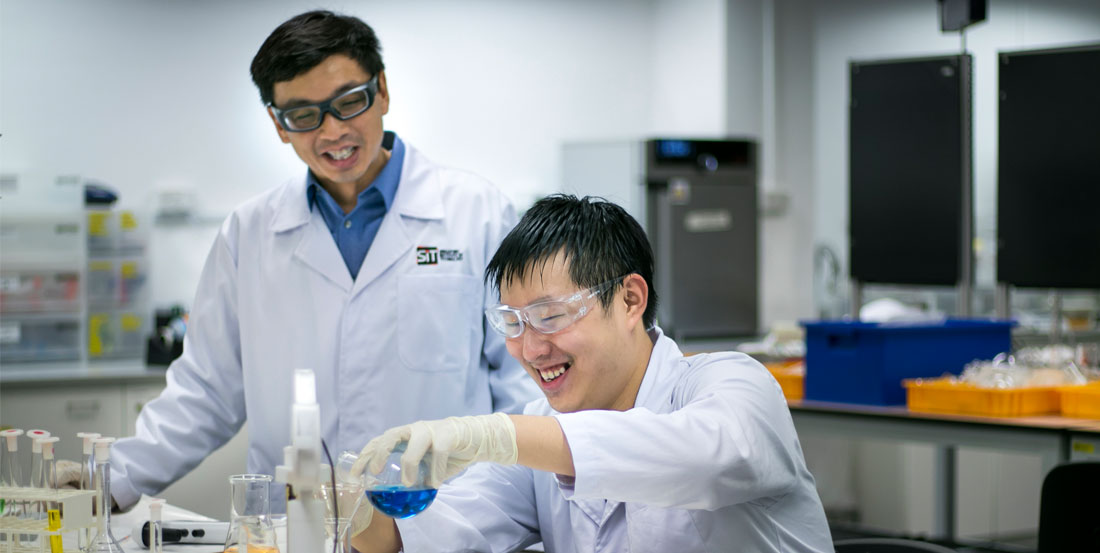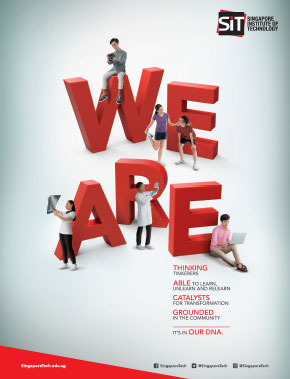Everyone has an innate desire to impact lives and change the world they live in for the better. In a pioneering move, Singapore Institute of Technology (SIT) introduced a degree in pharmaceutical engineering which strives to train industry ready engineers for the pharmaceutical industry as a game changer in the coming years.
Launched in 2015, this visionary programme was crafted at the request of the Economic Development Board (EDB) to tackle specific industry demands and growing niches. With the consultation of Biopharmaceutical Manufacturers Advisory Committee (BMAC) as well, graduates are equipped with not just pharmaceutical knowledge and laboratory expertise, but skills required to ensure the success of the industry such as operational excellence and cost-cutting strategies, among other modules.
Third year student, Huang Haiqing, who is among the pioneer batch of students pursuing the SIT Bachelor of Engineering with Honours in Pharmaceutical Engineering, shares how this degree appealed to him because it is specialised and yet unrestrictive. “It is broad and provides multiple career pathways and job opportunities,” he says.
“A very big advantage of SIT’s pharmaceutical engineering programme is that it takes a very holistic approach to the pharmaceutical industry. Regulatory practices that are covered in the curriculum are often overlooked in other higher education programmes,” Haiqing elaborates.
Associate Professor Lim Kok Hwa, who is the programme director, concurs. The thoughtfully-designed curriculum covers topics such as plant design, compliance, quality assurance, quality control, supply chain, automation and process development. Graduates can be technologists or take on engineering roles in the industry.

Lim Kok Hwa
Associate Professor and Programme
Director of Pharmaceutical Engineering
The interesting thing to note is Haiqing holds a diploma in chemical process technology from Singapore Polytechnic. While undergraduates were concerned that the curriculum would be hard to pick up initially, A/Prof Lim clarifies that the discipline sounds technical but “a diploma in pharmacy sciences, applied chemistry or life sciences would also be applicable to the pharmaceutical engineering degree.”
“Students should ideally have exposure to chemistry, life sciences or engineering although it may not be necessary to be familiar with all three fields,” he assures.
The credentials needed most to excel in this programme are passion and self-motivation. “That is what we are looking for the most,” A/Prof Lim continues. “This discipline is quite unique in the sense that its main role is to ensure that drugs are being produced in compliance with regulations and are safe for consumption. Taking that into account, it is perfect and ideal for anyone who has a higher mission in life and wants to make a difference in the lives of many others.”
As the main goal of the programme was to fulfil manpower shortages in areas identified by EDB’s industry analyses, undergraduates such as Haiqing will undergo an eight-month Integrated Work Study Programme (IWSP) in their third year. The IWSP is a key feature of SIT’s applied learning pedagogy which strives to train industry-ready graduates who can contribute efficiently upon graduation into the workforce.

Huang Haiqing
Year 3, Bachelor of Engineering (Hons)
in Pharmaceutical Engineering
“During my industry induction at Merck Sharp & Dohme in early 2017, I was working on a project where I had to identify possible faults in a diabetes drug manufacturing process that could result in the occurrence of broken tablets. This meant that I had to thoroughly understand the entire manufacturing process of the drug from start to finish. This gave me a comprehensive bird’s eye view of real-time drug manufacturing operations. Such attachment opportunities are also great because it allows undergraduates to assimilate into the working environments and assists them in adapting to a company’s culture gradually.”
When asked for parting advice for potential undergraduates who might be interested in this degree programme, Haiqing quips that “if your goal is to achieve a higher calling and to make a big difference in people’s lives, then perhaps the pharmaceutical engineering degree is the right fit for you.”
A/Prof Lim agrees and adds that polytechnic students make up most of the cohort and they are some of the most hardworking and tenacious students he has come across. “You must like what you’re doing. Having passion will help you persevere throughout the course. We need undergraduates who take personal responsibilities in their own learning and to work through difficulties as and when they encounter them.”


